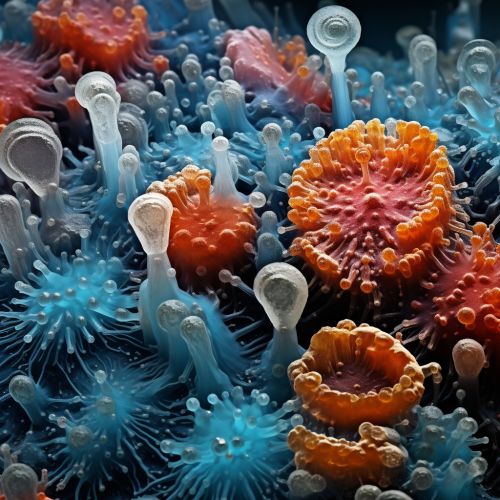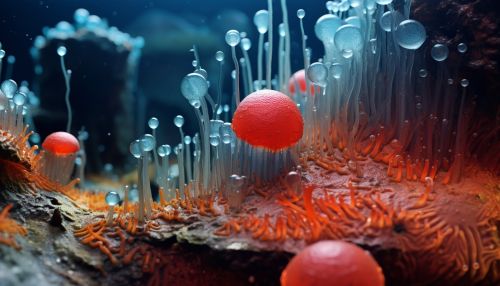Extremophiles
Introduction
Extremophiles are organisms that thrive in extreme environments, conditions that are detrimental to most life on Earth. These organisms can survive in conditions of extreme heat, cold, pressure, acidity, alkalinity, and even radiation. The study of extremophiles, known as astrobiology, has significant implications for the search for extraterrestrial life.


Classification of Extremophiles
Extremophiles are classified into various types based on the extreme conditions they can tolerate. These include:
- Thermophiles: These organisms thrive at unusually high temperatures, between 60 and 122 degrees Celsius.
- Psychrophiles: These organisms flourish in extremely cold environments, with optimal growth occurring at temperatures below 15 degrees Celsius.
- Halophiles: These organisms thrive in high salt concentrations, often in environments where the salt concentration is at least 5%.
- Acidophiles: These organisms flourish in acidic environments, with optimal growth occurring at a pH of 3 or below.
- Alkaliphiles: These organisms thrive in alkaline environments, with optimal growth occurring at a pH of 9 or above.
- Piezophiles: These organisms, also known as barophiles, thrive under high pressure, such as in deep-sea environments.
- Radiotolerant organisms: These organisms can withstand high levels of radiation, much higher than most other organisms can tolerate.
Adaptations of Extremophiles
Extremophiles have developed a range of adaptations that allow them to survive in extreme environments. These adaptations can be structural, metabolic, or physiological.
- Structural Adaptations: These include changes in the cell membrane and wall to prevent damage from extreme conditions. For example, thermophiles have a higher proportion of saturated fatty acids in their membranes to maintain fluidity at high temperatures.
- Metabolic Adaptations: These include the ability to use alternative energy sources. For example, some extremophiles can use sulfur or methane as an energy source instead of sunlight or organic matter.
- Physiological Adaptations: These include the ability to enter a dormant state when conditions become too extreme, only to revive when conditions improve.
Extremophiles and Astrobiology
The study of extremophiles has significant implications for astrobiology, the study of potential life beyond Earth. The existence of extremophiles suggests that life may exist in the extreme conditions found on other planets and moons. For example, the discovery of thermophiles in deep-sea hydrothermal vents suggests that similar organisms could exist on Jupiter's moon Europa, which is believed to have a subsurface ocean heated by tidal forces.
